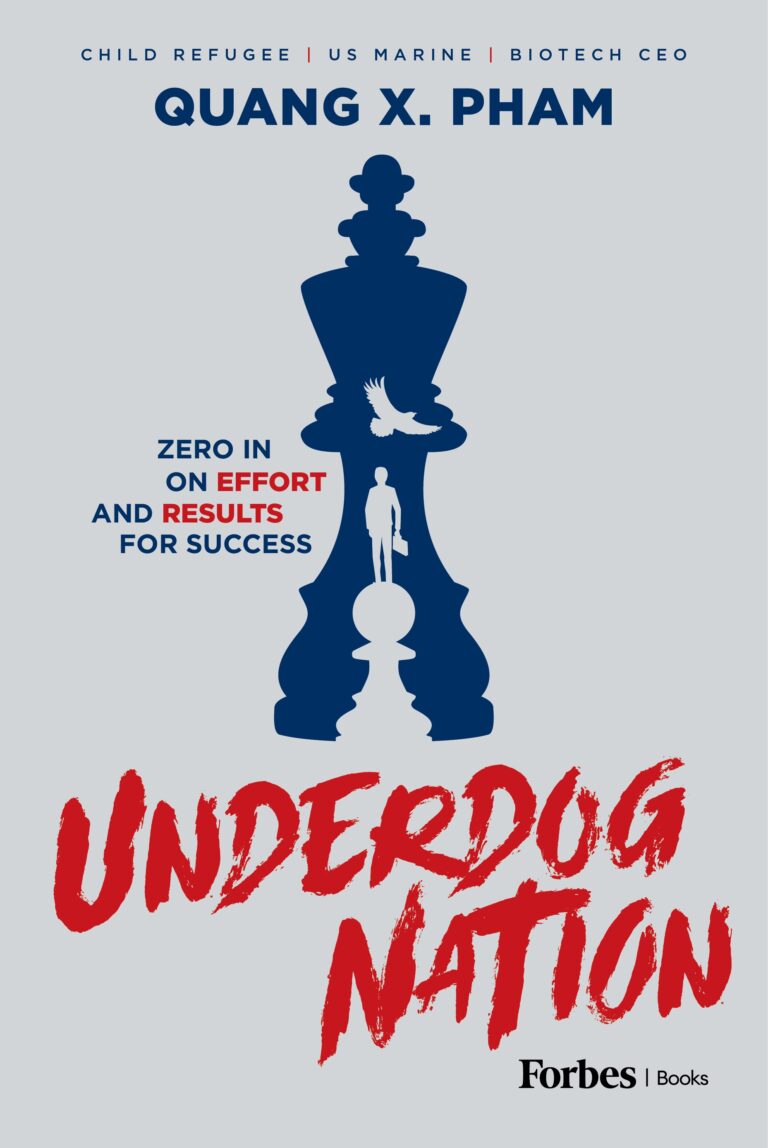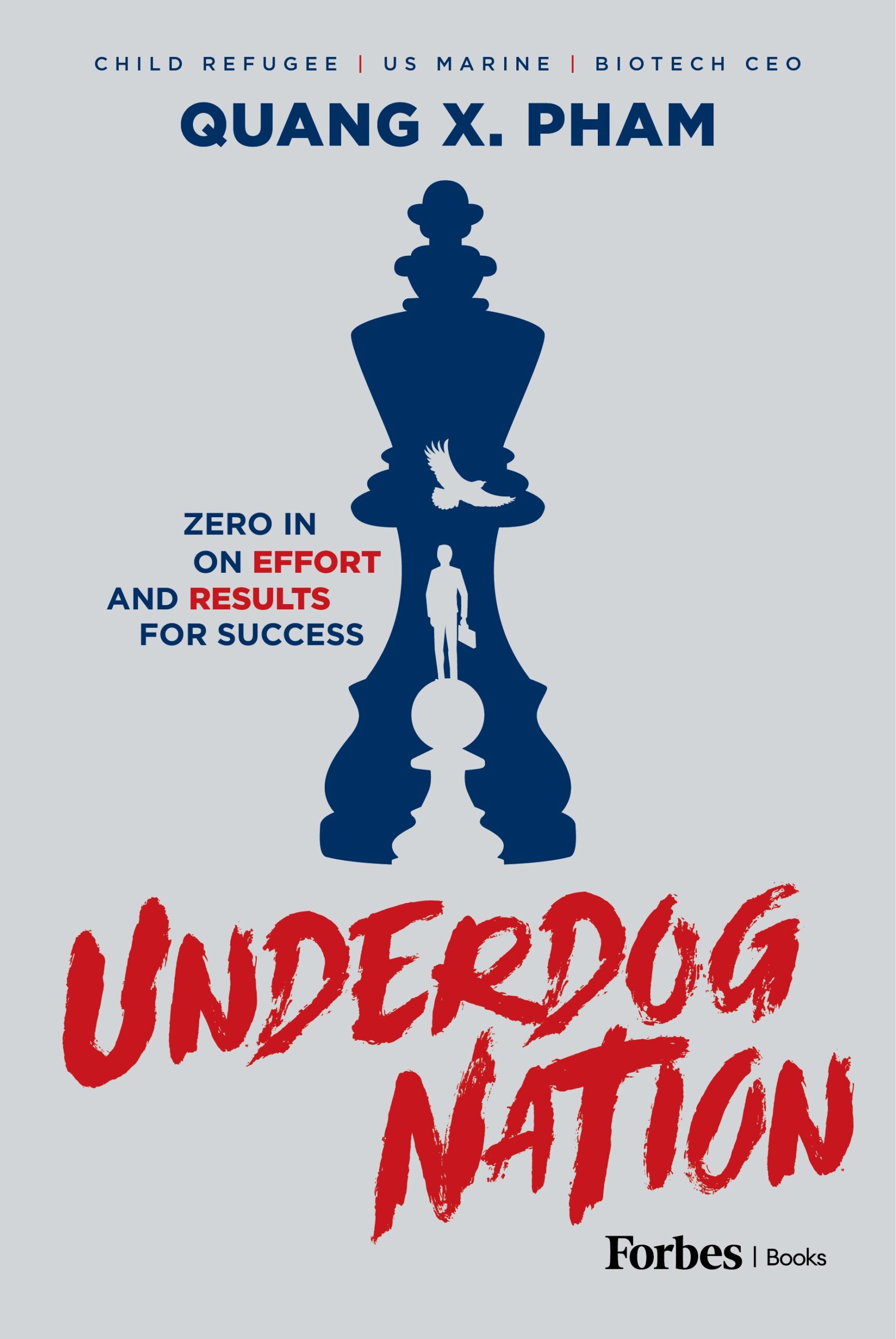Quang Pham has not had an easy life. A child refugee evacuated from Saigon at the close of the Vietnam War, Pham was raised in the US, where an intense desire to assimilate led to both a youth baseball career and, years later, service as a Marine Corps pilot. But it was his post-military work in the private sector—specifically working in pharmaceutical sales, both as part of large corporations and as a CEO of his own startups—that allowed Pham to reflect on and recognize his universally applicable principles for success.
The core of this system is recognizable and clear: what Pham calls “the ER,” effort and results. UNDERDOG NATION: Zero in on Effort and Results for Success hits something fundamental by noting that the only way to proceed is to act (not to endlessly analyze a decision until the decision is made for you) and then reflect on the outcomes (to learn from both successes and failures, not simply decide according to preconceived notions). This is somewhat adjacent to the tech world’s “move fast and break things” paradigm, but in a more mature form. In fact, it’s advice that’s just as useful for a supposed “underdog” as for any major corporation. UNDERDOG NATION also reiterates the importance of defining success for oneself, rather than allowing others to define it for you. This leads the text onto some unexpected but frankly enlightening paths: for instance, employees should treat jobs as vehicles to gain skills and experience, then leave (rather than feeling loyalty to a job); and individuals should extract value from the company, more than vice-versa. The central ideas about what a person can or should do—in personal or professional settings—are mostly solid.
UNDERDOG NATION does, however, fall into some common traps of entrepreneurial writing—importing some dodgy or useless ideas about success along the way. Although the text does acknowledge the existence of systemic issues, it falls into the typical trap of focusing on the power of individual agency at the expense of complexity. Sometimes this appears in the examples of success. FedEx founder Fred Smith, for instance, did supposedly create the company despite a college professor criticizing his proposed business plan in an econ course, but Smith was probably helped by his father’s money (from both a restaurant chain and a bus company). The econ professor in question was, of course, at Yale, where Smith not only got his BA but was a member of the famous Skull & Bones society—rubbing elbows with future presidents. Hardly a straightforward story of “hard work gets results.”
UNDERDOG NATION also falls back on analytically meaningless and politically loaded language, like “victim mentality,” to galvanize its audience. A Vietnamese immigrant, Pham has a complex personal history and his experience informs a nuanced understanding of how race, for example, interacts with success in America. Nonetheless, here it boils down to “immigrants need to work harder to get ahead,” rather than engaging with scientific studies of bias in corporate culture or looking at hard data. This is a missed opportunity for the text to set itself apart from similar professional self-help literature, but it’s also a disappointment—especially for readers who, like Pham himself, are from historically marginalized communities and are seeking guidance on how to walk the delicate tightrope between cultural assimilation and intellectual (as well as emotional) honesty.
Despite these missteps and missed opportunities, Pham’s UNDERDOG NATION still offers solid overall advice with the smooth, punchy polish of an experienced salesman pitching a great idea.
Although some of its advice can feel only loosely tied to the “underdog” idea, and some of it rehashes bland mainstream ideas about success, the overall structure of Quang X. Pham’s UNDERDOG NATION: Zero in on Effort and Results for Success sells the importance of action, reflection, and ambition.
~Dan Accardi for IndieReader


